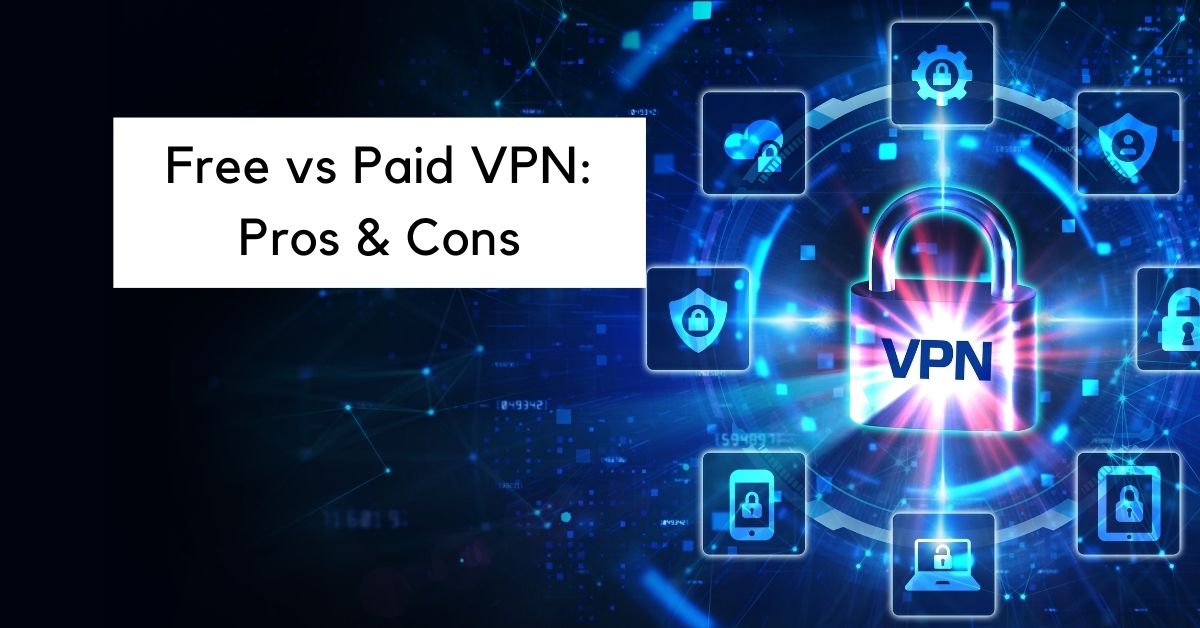Free vs Paid VPN: Pros & Cons
With an ever-increasing amount of our lives spent online, the importance of secure, private, and unrestricted internet access has never been greater. Virtual Private Networks, or VPNs, are key tools in achieving this, offering an extra layer of security and privacy while we browse the web. However, the world of VPNs can often seem divided into two camps: free and paid services. Each offers a different set of features, benefits, and drawbacks, making it crucial for users to understand the distinctions before making a choice.
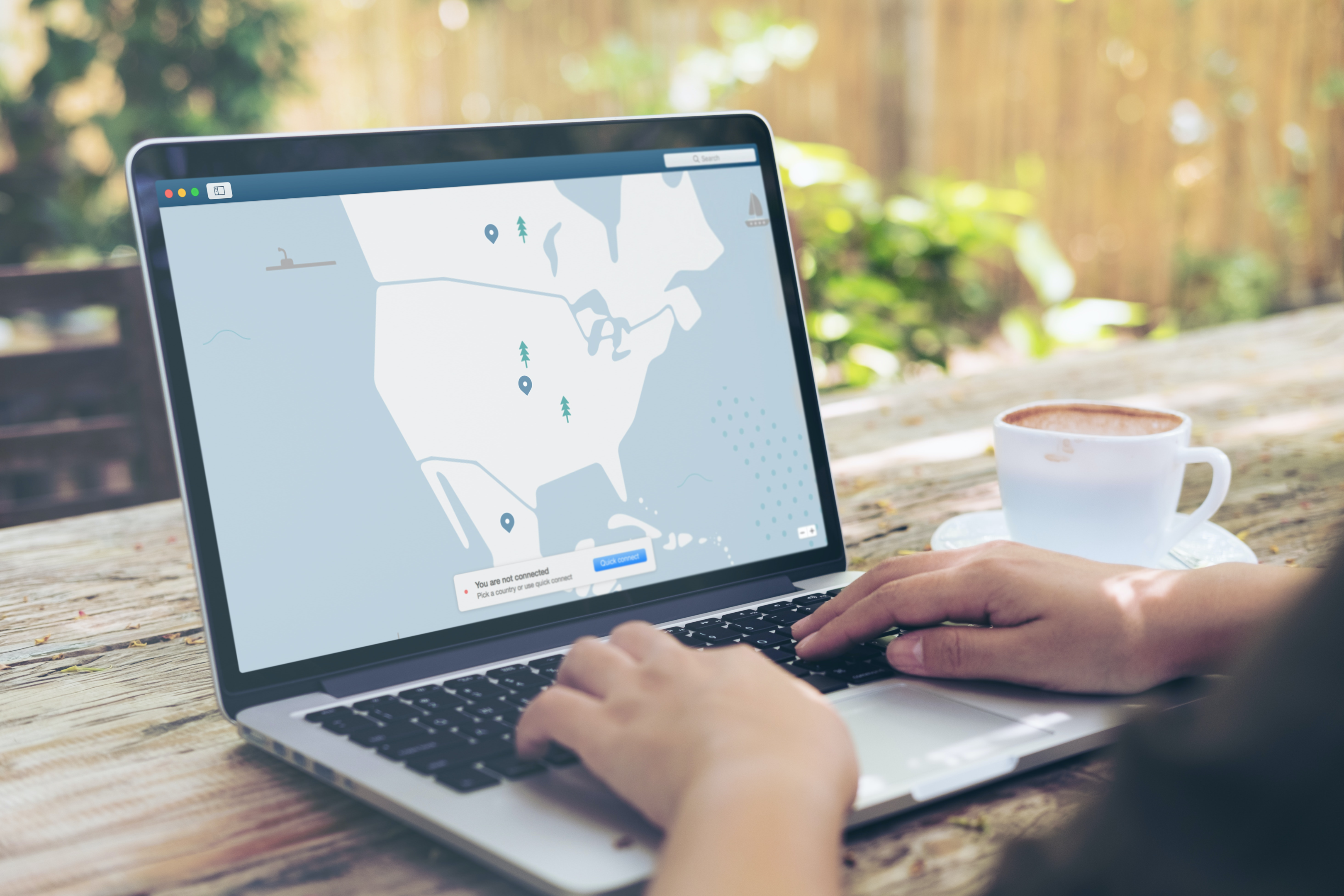
The importance of VPNs
The importance of VPNs extends beyond anonymity. By encrypting your data, VPNs protect sensitive information like login credentials, financial details, and personal correspondence from being intercepted or exposed. This protection is invaluable, especially when using public Wi-Fi networks, which are often less secure and more prone to attacks.
Furthermore, VPNs provide a way around geographic restrictions on internet content. By allowing you to appear as if you’re browsing from different locations, VPNs can help you access websites, streaming services, and other online resources that might be blocked in your actual location.
Despite sharing these core functions, not all VPNs are created equal. There is a wide variety of VPN services on the market, each offering different levels of security, privacy, speed, and other features. These variations often split the VPN market into two categories: free and paid VPNs. Understanding the distinctions between these two categories is crucial when choosing a VPN that best fits your needs, a topic we’ll explore in the upcoming sections.
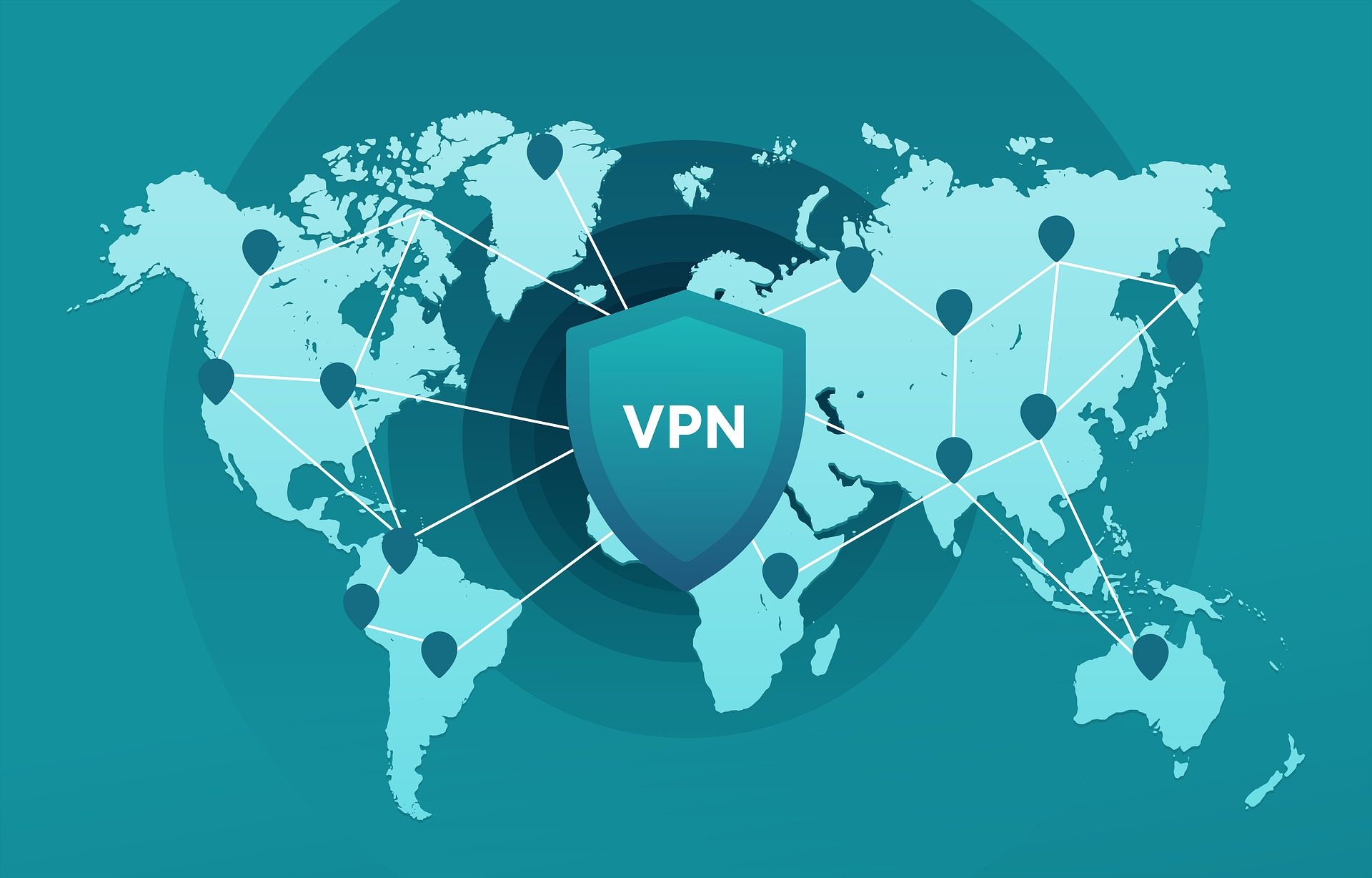
Free VPNs: An Overview
Free VPNs, as the name suggests, offer VPN services at no cost to the user. These services provide a basic level of security and privacy, allowing users to browse the internet without revealing their IP address or location. Free VPNs can be a convenient option for casual internet users who need simple, cost-free privacy solutions.
Typically, free VPN services offer a limited range of features compared to their paid counterparts. These limitations often include data caps, slower connection speeds, fewer server locations, and restricted access to advanced security features. Despite these constraints, free VPNs can still provide basic security and privacy functions, making them a feasible option for users with light internet usage or those who can’t afford a paid VPN.
Some popular examples of free VPNs include ProtonVPN Free, TunnelBear Free, and Hotspot Shield Free. These services offer a variety of features such as data encryption, multiple server locations, and basic privacy policies. However, it’s important to note that the specifics of what each free VPN offers can vary significantly, and users should thoroughly research and compare options before choosing a service.
Pros of Free VPNs
The primary advantage of free VPNs is in the name itself – they’re free. For users with light browsing needs or tight budgets, free VPNs offer a cost-effective solution to maintain a basic level of privacy and security online.
Pros
- No Cost: Free VPNs provide an essential service at no monetary cost to the user. This is particularly beneficial for those who need a VPN for sporadic use, such as occasional travel or public Wi-Fi use, and can’t justify the expense of a paid VPN.
- Anonymity: Despite their limitations, free VPNs still mask your IP address, making it difficult for others to track your online activities. This provides a basic level of anonymity online, a feature that is a primary function of all VPNs.
- Access to Geo-Restricted Content: Many free VPNs allow you to bypass geographical restrictions on content. This means you can access websites or streaming content that is unavailable in your location, albeit with potential speed or data limitations.
- Basic Security: Free VPNs offer a basic level of data encryption, which can protect your data from being intercepted during transmission. This is particularly useful when using public Wi-Fi networks, which can be insecure.
- Test Before Purchase: Free VPNs can serve as a trial run for users considering a paid service. They provide a way to understand the functionality and benefits of a VPN before committing financially.
While these advantages make free VPNs an attractive option for some users, it’s crucial to balance these benefits against the potential drawbacks. In the following section, we will discuss the cons of free VPNs to provide a more comprehensive understanding of what these services entail.
Cons of Free VPNs
While free VPNs indeed offer certain advantages, such as cost-effectiveness and basic privacy protection, they are also accompanied by a number of significant and potentially deal-breaking drawbacks. These issues span a broad spectrum, starting from performance limitations, often characterized by slower connection speeds and data caps, to potential privacy concerns, a paramount consideration in today’s digital age.
Cons
- Limited Data and Speed: Free VPNs often impose data caps and offer slower connection speeds compared to paid services. These limitations can disrupt your browsing experience, especially if you’re streaming content, downloading large files, or using the VPN frequently.
- Reduced Server Options: Free VPNs typically have fewer servers in fewer locations. This can lead to overcrowded servers and slower speeds. It also limits your ability to bypass geo-restrictions as effectively as you might with a paid VPN.
- Ads and Upselling: Many free VPNs are ad-supported, which means you may have to deal with intrusive advertisements while using the service. These VPNs may also frequently prompt you to upgrade to their paid versions.
- Lack of Advanced Features: Free VPNs often lack advanced security features, such as kill switches, split tunneling, and the ability to use different VPN protocols. This means you’re getting a less secure, less flexible service.
- Privacy Concerns: The most significant drawback of free VPNs is the potential for privacy risks. Some free VPNs have been found to track users’ online activities, collect data, and even sell it to third parties. This negates the fundamental purpose of a VPN – to protect your privacy.
It’s important to note that not all free VPNs have these issues, but the potential for such problems does exist. Therefore, it’s crucial to thoroughly research any free VPN service before using it to understand its policies and practices fully. In the next section, we’ll shift our focus to paid VPNs and explore their features, as well as their pros and cons.
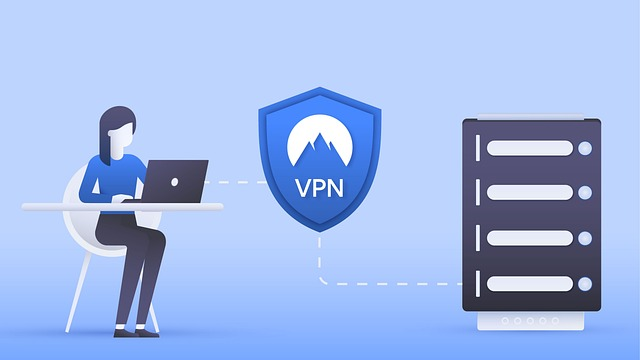
Paid VPNs: An Overview
Paid VPNs charge users for their services via subscriptions, offering an expanded set of features in return. These features typically include faster connection speeds, higher or no data caps, a broad range of server locations, and advanced security settings. Customer service is also usually part of the package, lending a helping hand when needed.
Notable paid VPN services such as ExpressVPN, NordVPN, and CyberGhost lead the market with their extensive feature lists and user benefits. However, the specifics of offerings, pricing, and policies differ among these services, necessitating careful comparison and research from potential users. Despite their enhanced features, paid VPNs have their own set of drawbacks, which we will discuss in the following sections.
Pros of Paid VPNs
Paid VPNs offer numerous advantages over free VPNs, primarily stemming from their extensive features and robust service offerings.
Pros
- Speed and Unlimited Data: Paid VPNs typically offer faster connection speeds and unlimited data usage. This makes them ideal for regular or heavy internet users, especially those who stream, download large files, or require a VPN for gaming.
- Extensive Server Options: With a paid VPN, users have access to an extensive range of servers worldwide. This not only provides better speed and connection reliability but also makes it easier to bypass geo-restrictions.
- Advanced Security Features: Paid VPNs often include advanced security features such as kill switches, which disconnect your device from the internet if the VPN connection drops, and split tunneling, which allows you to route some traffic through the VPN while letting other traffic access the internet directly.
- Stronger Privacy Policies: Paid VPNs typically have more robust privacy policies compared to free VPNs. They are less likely to log your activities or sell your data, given that their primary revenue comes from subscriptions, not data selling or ads.
- Reliable Customer Support: Paid VPNs usually offer dependable customer support, including live chats, email support, and extensive knowledge bases. This can be invaluable if you encounter any issues or have questions about using the service.
While these benefits make paid VPNs a compelling choice, they are not devoid of disadvantages. We will explore these in the next section to provide a balanced perspective on paid VPN services.
Cons of Paid VPNs
Despite the numerous benefits, paid VPNs also come with certain drawbacks that potential users should be aware of.
Cons
- Cost: The most apparent disadvantage of paid VPNs is the cost. While most offer affordable plans, the expense can add up over time, particularly for those on tight budgets or with light internet usage.
- Complexity: With the multitude of features they offer, some paid VPNs can be complex to set up and use, particularly for less tech-savvy users. This could lead to underutilization of the service’s full potential.
- Overkill for Casual Users: For users who only need basic privacy protection or occasional access to geo-restricted content, a paid VPN might provide more features than necessary, making a free VPN a more cost-effective choice.
- Potential Logging Policies: While paid VPNs typically have better privacy policies than free ones, some may still collect certain data. It’s essential to read the privacy policy of any VPN service carefully to understand what data they may collect.
- Software Compatibility: Not all VPNs are compatible with every device or operating system. While most major paid VPNs support a wide range of devices and platforms, there can be exceptions.

Comparing Free vs Paid VPNs
Deciding between a free VPN and a paid VPN service is a choice that hinges on your specific needs and circumstances.
Side-by-side comparison
The main draw of free VPNs is undoubtedly their non-existent cost. However, this free tag often comes with considerable compromises in features, speed, and privacy.
Paid VPNs, in contrast, are known for delivering superior connection speeds and offering unlimited data allowances. Free VPNs can’t usually compete in this aspect, as they often impose data restrictions and provide slower connection speeds, primarily due to overburdened servers.
In terms of server diversity, paid VPNs generally outshine free ones by offering a broader selection of server locations. This advantage not only ensures improved connection reliability but also aids in efficiently circumventing geographic restrictions.
Security-wise, paid VPNs hold a clear edge. They typically feature advanced security options like kill switches and split tunneling, which are rarely found in free VPNs. Privacy, a cornerstone of VPN services, is better guaranteed with paid VPNs. While both free and paid VPNs promise a level of privacy by masking your IP address, paid VPNs often have stricter privacy policies, making them less likely to keep logs or monetize your data.
Customer support is another arena where paid VPNs tend to excel, often providing dependable support services through live chat and email—a feature that’s usually scarce in free offerings.
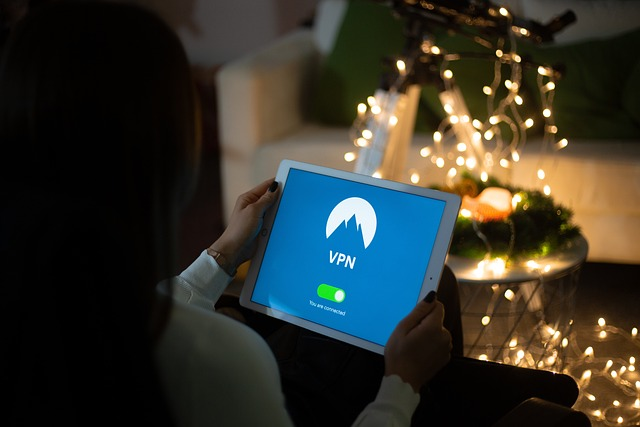
Conclusion
In conclusion, both free and paid VPNs have their place in the digital landscape, each with its own set of pros and cons. Free VPNs provide a basic level of protection and can be an adequate choice for occasional or light internet users, while paid VPNs deliver a more comprehensive package of features, suitable for heavy internet users or those who require robust security and privacy.
The choice between a free and a paid VPN service ultimately depends on your individual needs, priorities, and budget. It’s essential to remember that not all VPNs are created equal, and the quality of service can vary significantly within both free and paid categories. Always conduct thorough research, read user reviews, and understand the service’s privacy policy before committing to a VPN service.
Remember, your online security and privacy are paramount. Choose wisely, and ensure your VPN service aligns with your internet usage habits and security needs. Stay safe online!

